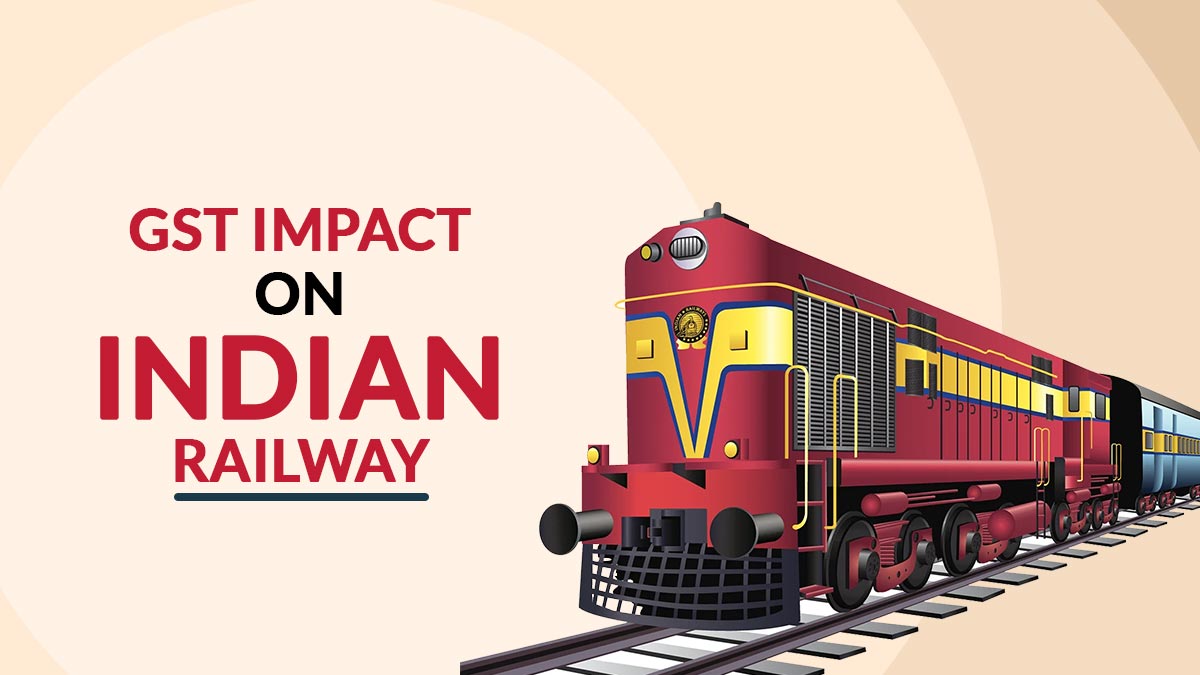
For a considerable time, the GST has been a topic of debate, and now its scope extends to the indian railway sector. The cause and effect of GST need to be explored in the extensive railway sector, which encompasses all operational project sectors.
Indian Railways (IR) is responsible for managing the railway system in the country and operates under the Ministry of Railways. Although IR has a separate budget, known as the Rail Budget, its operations are subject to certain direct/indirect tax obligations. These include income tax, excise duty, service charges, and the Swachh Bharat Cess (SBC), among others.
Indian Railways (IR) operates across various zones and divisions and is involved in numerous public sector initiatives, including a range of business models and projects under public-private partnerships (PPPs) and joint ventures (JVs).
Key sources of income for IR include freight charges, passenger fares, promotional activities, land leasing, and various rental agreements. To support its growth, modernisation, and maintenance, IR urgently requires funds and plans to raise capital efficiently to fulfil its current and long-term budgetary necessities.
56th GST Council Meeting Update for the Indian Railway Network
| Entry | New GST Rate from 22nd September 2025 |
|---|---|
| Supply of transport of goods in containers by rail by any person other than Indian Railways | 5% without ITC |
| 18% with ITC | |
| Railway or tramway sleepers (cross-ties) of wood | 5% |
New tax rates for the Indian Railways network have been rolled out by the 56th GST Council meeting, which came into effect on September 22, 2025.
- High-Speed Diesel (HSD) and Light Diesel Oil (LDO) used by Indian Railways can be considered inputs for Cenvat Credit.
- Locomotives and coaches being used for captive usage can get waived from Excise Duty/GST.
- Overhead electric wires and related equipment under Chapter 86 of CETA, 1985, may qualify as Capital Goods, allowing for Cenvat Credit.
- All undertakings being executed via Indian Railways through PPP/JV may be exempted from the collection of proposed GST to enhance rail infrastructure development and the Indian economy.
- Long-term leases for infrastructure development must be regarded transfer of a benefit.
- Cleaning at railway stations, railway tracks, etc., can be included in the Sanitation Conservancy and exempted from requiring GST in the national interest and in consideration of SBC activities.
- Indian Railways may be exempt from paying GST under the reverse charge mechanism or TDS arrangement.
The government’s focus on increasing the Railways’ share in transport aims for 45% by 2030, up from the current 33%, despite concerns about the impact of the GST regime.
GST Impact on Railway Suppliers
Railway suppliers have come within the GST ambit, which causes issues and leads to stop operations. Most of the impacted units are small fabrication businesses located in Punjab, Haryana, and Chandigarh. Such suppliers are facing issues in handling GST compliance.
The famous coach factory in Kapurthala, known for producing at least six coaches daily, is currently facing challenges.
75% of railway supply firms have partially or completely stopped their supplies because of losses from the GST impact.
Firms’ losses reason- Railway suppliers paid a 12% excise duty on raw materials and 6% VAT, and the railways provided them a 12% refund, before levying GST. Post charging of GST, suppliers are required to file 18% on raw materials, while the refund is less than 7% overall. The whole Railway supply chain has been impacted by this problem.
GST Decrease on Food Items
Now there is a 5% GST on food items, which earlier was 18% for items sold on both platforms and inside trains by the central government. The same move has the objective of furnishing food at cheaper rates to passengers.
Also Read: Revised GST Slab Rates in India
For reducing the GST rate in catering, a letter has been received from the head office, Ferozpur Divisional Railway, DRM Vivek Kumar, and DCM Rajneesh Shrivastava have confirmed.
GST on Station Parking Charges
For two-wheelers and four-wheelers, GST is applied by Indian Railways on parking lots at railway stations in the nation.
Post GST execution, the parking contractor now charges ₹6 for a two-wheeler for the first five hours, which includes a ₹5 parking fee and a ₹1 GST. Likewise, Rs 12 is the charge for a four-wheeler.
At present, the parking contractors are imposing Rs 5 for two-wheelers and ₹10 for four-wheelers. All parking contractors have been asked by the Indian Railways to furnish new parking slips. The new parking rates will come into force after the new slips are printed.